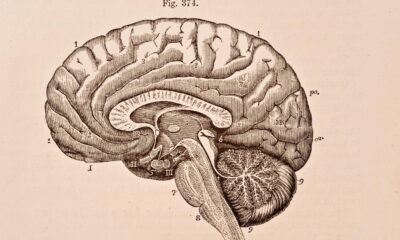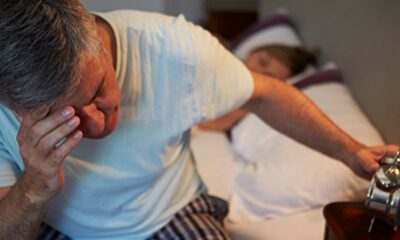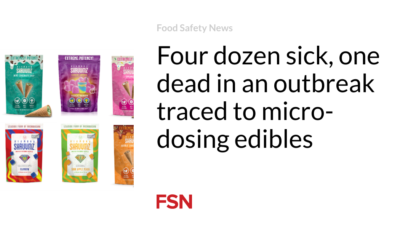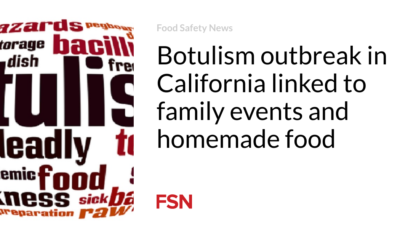Health
Could ultra-processed foods be linked to your insomnia?

Credit: Unsplash/CC0 public domain
Ultra-processed foods (UPF) may be linked to insomnia, which an estimated one-third of adults experience. A analysis of diet and sleep patterns reported in the Journal of the Academy of Nutrition and Dieteticsdemonstrates a statistically significant association between UPF consumption and chronic insomnia, independent of sociodemographic, lifestyle, diet quality, and mental health status characteristics.
Lead investigator Marie-Pierre St-Onge, Ph.D., Department of General Medicine and Center of Excellence for Sleep & Circadian Research, Department of Medicine, Columbia University, explains: “At a time when more and more foods are highly processed and sleep disorders are widespread, It is important to evaluate whether nutrition can contribute to poor or good sleep.”
Although previous studies have examined nutrients or dietary supplements in relation to sleep (e.g., protein, magnesium), this study is novel because it evaluates a diet beyond just nutrients and specific foods and shows that the extent to which foods are processed may have some influence to have. relevance to sleep health.
Dr. St-Onge adds: “Our research team had previously reported associations between healthy dietary patterns, such as the Mediterranean diet, with a reduced risk of insomnia and poor sleep quality (both cross-sectionally and longitudinally), and high-carbohydrate diets with an increased risk of insomnia UPF consumption is increasing worldwide and has been linked to many health problems, such as diabetes, obesity and cancer.
To investigate the relationship between dietary intake and sleep, this large epidemiological study used NutriNet-Santé data from more than 39,000 French adults. This large cohort study was ideally suited to answer this question, given the inclusion of sleep variables and several days of detailed nutritional information.
Between 2013 and 2015, data was collected every six months from adults who completed multiple 24-hour dietary records and provided information on insomnia symptoms. The definition of insomnia was based on the DSM-5 and ICSD-3 criteria.
Participants reported expending about 16% of energy from UPF and almost 20% reported chronic insomnia. Individuals who reported chronic insomnia consumed a higher percentage of their energy intake from UPF. The link between higher UPF intake and insomnia was clear in both men and women, but the risk was slightly higher in men than women.
First author Pauline Duquenne, MSc, Sorbonne Paris Nord University and Paris Cité University, INSERM, INRAE, CNAM, Nutritional Epidemiology Research Team (EREN), Center for Research in Epidemiology and Statistics (CRESS), cautions: “It is important to note that Our analyzes were cross-sectional and observational in nature, and we did not evaluate the longitudinal association. Our data do not demonstrate causality. Our study is the first of its kind and adds to the existing knowledge about UPF.”
Other limitations of the study included the reliance on self-reported data and the possible misclassification of some foods. Caution should be exercised in generalizing the findings as NutriNet-Santé includes a higher percentage of women and individuals of high socio-economic status compared to the general French population, although UPF intake was comparable to that of a nationally representative sample .
The researchers recommend that future studies should test causality and evaluate the associations over time. However, they recommend that individuals with sleep problems may consider examining their diet to determine whether UPF could be contributing to their sleep problems.
More information:
Pauline Duquenne et al., The Association between Ultra-Processed Food Consumption and Chronic Insomnia in the NutriNet-Santé Study, Journal of the Academy of Nutrition and Dietetics (2024). DOI: 10.1016/j.jand.2024.02.015
Quote: Could ultra-processed foods be linked to your insomnia? (2024, May 30) retrieved May 31, 2024 from https://medicalxpress.com/news/2024-05-ultra-foods-insomnia.html
This document is copyrighted. Except for fair dealing purposes for the purpose of private study or research, no part may be reproduced without written permission. The content is provided for informational purposes only.













